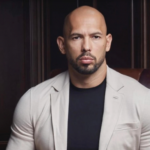Russell Brand: Next on the #MeToo Sexual Abuser Hitlist

Following the well-publicised convictions in the United States of Harvey Weinstein, Jeffrey Epstein, Ghislaine Maxwell and Bill Cosby – the last of which was subsequently overturned – the latest in a series of sexual assault allegations to come in the wake of the #MeToo movement are claims that actor and comedian Russell Brand sexually, physically and emotionally abused several women between the years 2003 and 2013.
The 48-year old has vehemently denied the allegations, labelling them a ‘coordinated attack’ against him and asserting that all of his relationships “were absolutely, always consensual”.
He has not been formally charged and is presumed innocent until and unless he is charged and subsequently found guilty in a court of law.
However, mainstream media networks around the globe are having a field day attempting to destroy the reputation and career of the polarising public figure for ratings, as domestic networks managed to do to Bruce Lehrmann, the man accused but never found guilty of sexually assaulting Brittany Higgins.
The story so far
Metropolitan Police in the United Kingdom initially received a report from one woman that she was sexually assaulted by Brand in central London.
The report followed an article published jointly by the Times of London, The Sunday Times and Channel 4 Dispatches, which painted Brand as a misogynist and abuser.
Three more women then claimed that between 2006 and 2013, while Brand was at the peak of his mainstream media career as a presenter for BBC Radio 2 and Channel 4 and then an actor in Hollywood films, he sexually assaulted and emotionally and/or physically abused them.
None of those women has formally reported their claims to police.
The allegations levelled against Brand by the four women are as follows:
- The first woman claims Brand raped her without a condom in his Los Angeles home. She says he prevented her from leaving before she told him she needed to go to the bathroom and made her escape.
- The second woman asserts he assaulted her in the UK while she was 16 and Brand was 30. She claims he referred to her as “the child” and “engaged in the behaviours of a groomer”.
- The third woman alleges he sexually assaulted her while they worked together in Los Angeles. She claims that during the assault, she directed him to get off her at which time he “flipped” and was “super angry”.
- The fourth woman says he sexually assaulted her in the UK, and that he was both physically and emotionally controlling towards her.
A polarising personality
Russell Brand has always been a controversial figure – a person some see as arrogant, annoying , sleazy and deluded while others view him as friendly, charming, intelligent, funny and socially aware.
Once known for his addiction to drugs, alcohol and sex, and for famously ending his marriage to Katy Perry by text, Brand has done a lot to clean up his image.
He has never tried to cover up the partying or the promiscuity, and achieved sobriety through the 12-step programme.
In recent years, Brand has turned his position as a public figure to highlight social justice issues.
Brand has strenuously denied the allegations
As a person who has become known for saying out loud that others are only thinking silently, Brand is the recipient of both a lot of online love and hate in fairly equal measure.
And right that now poses a significant problem for him.
Russell Brand has steadfastly denied the accusations against him, and has said that all of his sexual relationships have been consensual.
But as tends to be the way with allegations against high-profile people, the battle lines have already been drawn, public opinion is well and truly divided, everyone has a view they want to share online … all well before a full police investigation, the formal laying of any criminal charges or the assembling of a jury.
The trial by media begins
The Times article interviewed four women, only one formal report has been made to police, and no charges have been laid.
In fact, a police investigation has not yet been confirmed.
Since the article was published, Brand’s publicist has ended their contract and YouTube has suspended monetisation of his channel. UK Politicians are pressuring the police to investigate. And the mainstream media is in overdrive.
With all this, and the ink barely dry on the original story it’s impossible not to wonder what impact this bright (and most likely relentless) spotlight will have on the justice process, however it plays out.
Locally, News.com has produced a story under the headline: “Russell Brand’s ‘creepy’ Liz Hayes act resurfaces”
This type of ‘journalism’, with its provocative and persuasive headline, only serves one purpose – to feed the hungry public and fill the 24-hour news cycle.
In turn, it perpetuates cognitive bias, encouraging people to take a view that’s either ‘for’ Russell or ‘against’ him and it is particularly irresponsible when such serious allegations have been made.
What about the presumption of innocence?
Let’s be clear: Russell Brand has not been charged with any criminal offence, and is entitled, along with anyone else who has been accused of a crime, to the presumption of innocence unless a court of law determines guilt beyond reasonable doubt.
This is a fundamental principle of the common law and a basic human right.
Just as importantly, the complainants too, deserve a clear pathway to justice not marred by media intervention.
Australian media in particular should take heed. With the prosecution of Bruce Lehrmann over claims he sexually assaulted Brittany Higgins in Parliament House fresh in memory, we should remember that both the accused and the accusers suffer when the media spotlight becomes too intense.
Unbiased coverage that chooses a particular narrative from the outset can run the risk becoming prejudicial and then justice cannot possibly take its natural course.
What did we learn from the prosecution of Bruce Lehrmann?
In hindsight, with all we now know about the prosecution of Bruce Lehrmann, the case suffered undeniably from the start – from the initial police investigation, through to the decision to prosecute and the trial itself. There were no winners, lives have been irrevocably damaged.
The mainstream media wields a great deal of power and while the justice system itself is working to find ways in which it can manage high profile cases that have been the subject of media and social media saturation coverage, the role of the media must be independent and impartial.
Re-traumatising victims
It should also be respected that cases of historical assault can be difficult for police to investigate, particularly if there have been significant lapses of time between the alleged assault and the reporting of it. Often the process can be highly traumatic for victims.
When cases are continually splashed across the headlines and debated on social media it can also serve as a very real deterrent for other victims to come forward.
Prosecuting alleged historical sexual offences in New South Wales
There are dozens of historical sexual assault and sexual abuse allegations currently before Australian courts – many of them triggered by the Royal Commission into Child Sexual Abuse.
There is no statute of limitation on reporting historical sexual offences – a complainant can contact police no matter how far back the offence was allegedly committed.
However, in New South Wales, there are rules that prevent many less-serious offences from being charged long after the incident.
For example, police in NSW will not normally be allowed to press charges for less-serious offences, called ‘summary offences’, more than 6 months after the alleged incident occurred.
Summary offences are generally those that carry maximum prison sentences of 2 years or less
However, Police will consider each report on merit and take serious offences very seriously.
Because sexual offence legislation has changed and been updated over time, the alleged offence may now be called something entirely different. Police need to work carefully and accurately to determine what to charge an offender with. And, importantly, even if an alleged act was committed under a law which has since been repealed or amended, a person can still be prosecuted.







